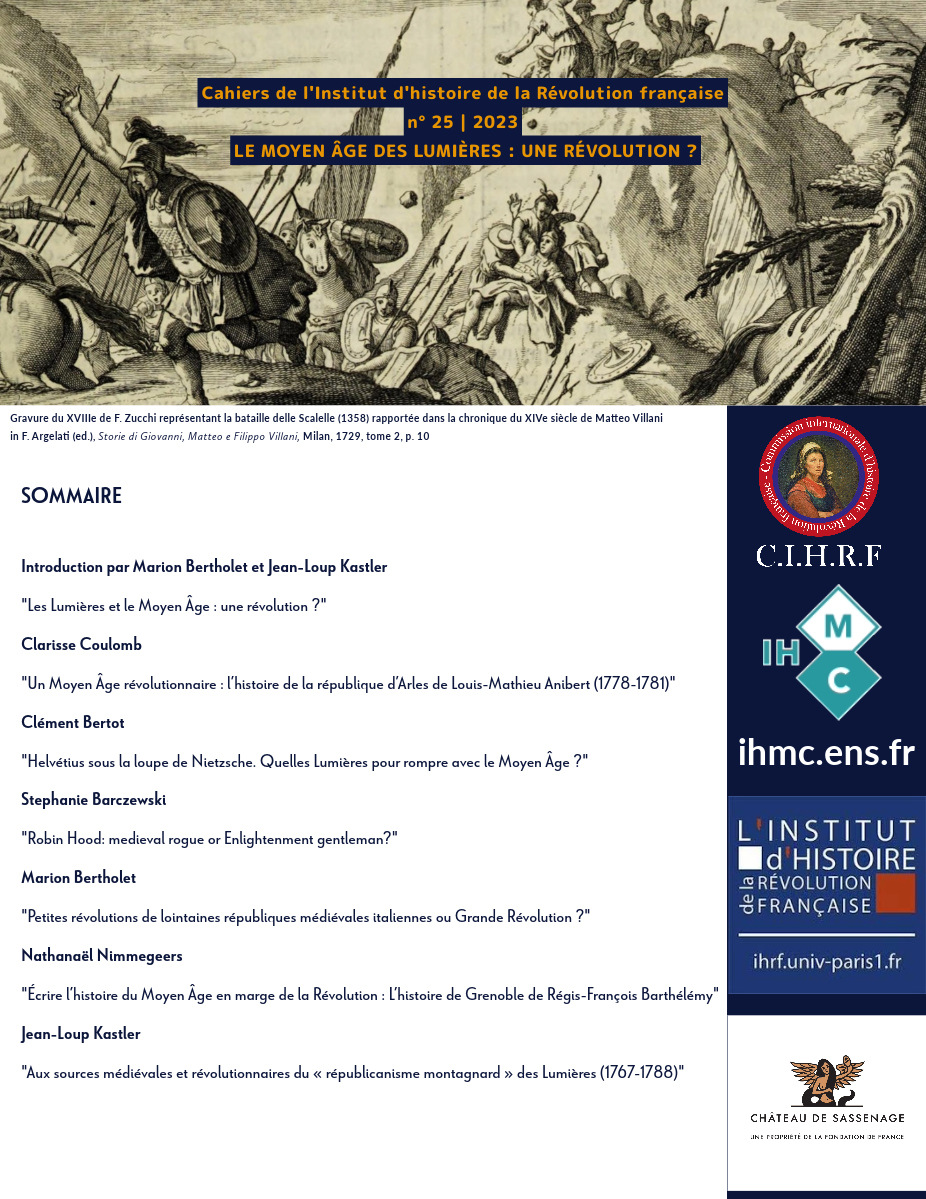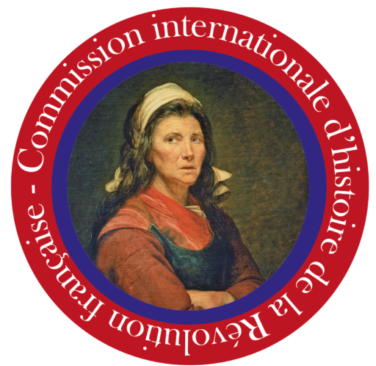Le Moyen Âge des Lumières : une révolution ?
Dans le sillage des plus récents travaux sur les relations entre les deux périodes, ce numéro des Cahiers de l’Institut d’histoire de la Révolution française a pour objectif de réévaluer le rapport entretenu par les Lumières avec le Moyen Âge.
Loin de réduire le Moyen Âge à une « longue nuit », la période des Lumières a été l'occasion d'une réhabilitation de cette époque à travers un certain nombre de figures et de moments emblématiques sur lesquels portent les contributions publiées ici.
Non seulement les Lumières ont été à l’origine d’une véritable « intelligence du Moyen Âge » mais la référence à cette période a aussi pu servir de support au développement de discours révolutionnaires comme le montre l'exemple de la Magna Carta dans le monde anglo-saxon.
Cela n’a pas empêché la construction d’un certain nombre de mythes dont nous discuterons les enjeux historiques et politiques dans une perspective résolument transpériodique et interdisciplinaire.
Enfin, nous souhaitons souligner que ce numéro est à l’origine d’un projet de traduction en français du maître ouvrage de Peter Linebaugh intitulé The Magna Carta Manifesto paru en 2008. Nous espérons que cette traduction par Christophe Jaquet qui paraîtra aux Éditions Charles Léopold Mayer en janvier 2024 en partenariat avec la Commission internationale d’histoire de la Révolution française contribuera à la relance du débat sur la notion de « communs » enrelation avec la période révolutionnaire.
Jean-Loup Kastler-Vassilievitch

In the wake of the most recent work on the relationship between the two periods, this issue of Cahiers de l'Institut d'histoire de la Révolution française aims to reassess the Enlightenment's relationship with the Middle Ages.
Far from reducing the Middle Ages to a "long night", the period of the Enlightenment was the occasion for a rehabilitation of this era through a number of emblematic figures and moments, which are the focus of the contributions published here.
Not only did the Enlightenment give rise to a veritable "intelligence of the Middle Ages", but references to this period also served as a basis for the development of revolutionary discourse, as shown by the example of the Magna Carta in the English-speaking world.
This has not prevented the construction of a number of myths, the historical and political stakes of which we will discuss from a resolutely transperiodic and interdisciplinary perspective.
Finally, we'd like to point out that this issue is at the origin of a project to translate Peter Linebaugh's masterwork The Magna Carta Manifesto, published in 2008, into French. We hope that this translation by Christophe Jaquet, which will be published by Éditions Charles Léopold Mayer in January 2024 in partnership with the International Commission for the History of the French Revolution, will contribute to reviving the debate on the notion of "commons" in relation to the revolutionary period.
Jean-Loup Kastler-Vassilievitch
